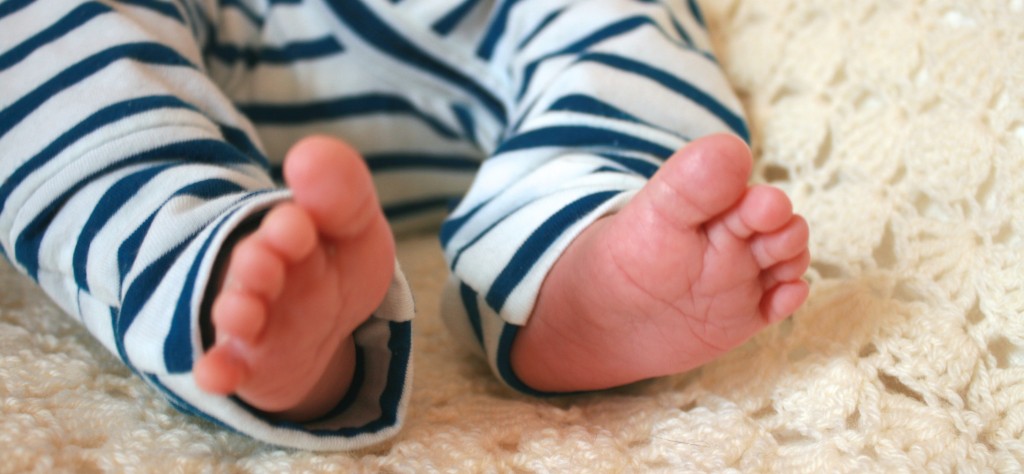The first three months following childbirth can be tough – sleep deprivation on top of recovering from labour, establishing breastfeeding, adjusting to your new identity as a mother, and as a larger family. And then there is a brand new little person to get to know – figuring them out can be stressful, especially when you have tried everything on the checklist and they are still crying. The best plan is to take it very easy for this “fourth trimester”, a term used to describe the period of rapid growth and development a newborn undergoes in the first three months of life as it makes the transition from womb to world, but an equally important time for your recovery after pregnancy and childbirth, and transition into motherhood.
After pregnancy the body undergoes physical changes as drastic as those that took place during pregnancy, but much more rapidly. It takes nine months to grow a baby, but all too often once baby is born the mother’s body is expected to bounce back within four to six weeks, rather than allowing it to gradually return to normal. A recent study found that most women need months, maybe even up to a year, to fully recover from childbirth. Rest and replenish is a much better goal than “two weeks to your pre-baby body” (no thanks, Hollywood!) as you regain equilibrium and find your new normal in the fourth trimester.
Don’t overload on visitors (except for the ones that bring food and don’t expect you to serve it to them), prioritise sleep, and don’t feel bad that you won’t get a whole lot done in all that “spare time” you thought you’d have – other than keeping a tiny human alive and healthy, a massive achievement in itself!
So, what to do in the fourth trimester?
Rest. Especially in the newborn days, let other friends or family stock up on baby cuddles while you get an extra hour of sleep, or however long till your baby gets hungry again. Physical exertion or lifting anything heavier than your baby will slow down recovery, increase blood loss, and can strain an already weakened pelvic floor. Ideally, spend the first week in bed (or lying on the couch), then another week resting.
Eat. Lots of protein, good fats and iron-rich foods – your body needs fuel for making breast milk, as well as rebuilding lost blood and healing after birth. Around the clock (healthy) snacks while breastfeeding at 3 a.m. will keep your energy stores topped up.
Drink. Water, not wine… though soon enough you can have a glass as long as you allow 2 hours for the alcohol to clear before feeding! Breastfeeding creates an almost unquenchable thirst, and strategically placed water bottles will help you to stay hydrated while you are chained to the couch.
Move (gently). After the first week (or two, if there were complications), getting out of the house for a short and gentle walk will make you feel more human, as will the fresh air and sunshine. Just rug up well, as you are more susceptible to catching cold at the moment.
Ask for help. From food deliveries by family and friends, to expert advice if you are struggling with breastfeeding, pelvic floor recovery, or feel emotionally overwhelmed as hormones fluctuate, this is not a time to try and go it alone. It really does take a village to raise a child, so call on your network for support. Your Chinese medicine doctor can prescribe herbs to assist with any issues, and these can be taken while breastfeeding.
Many cultures appreciate the need for a new mother to take time out to rest and recover – to heal physically, adjust to changing hormones and relationships, learn to breastfeed, care for and bond with her baby – while her family cares for her. In China (and other East Asian cultures) this practice is known as “confinement”. Mother and baby are expected to rest indoors, while family members cook, clean, and run their household for the first few weeks. Soups or stews infused with Chinese herbs like red dates, ginger, and dang gui are prepared specially to clear stagnant blood and help the uterus recover, and then to rebuild energy levels (also helpful for good milk supply), warm the body to help circulation and joints, and strengthen the adrenals.
Chinese medicine recognises that your body is weakened after childbirth (particularly if there was heavy blood loss), and places great importance on rebuilding your reserves and keeping warm while the body’s defence system is vulnerable. Catching cold or simply getting exhausted and failing to replenish your body in the weeks after birth can cause long-term health problems later in life. Proper rest and recovery now can mean a smoother transition into menopause and improved health in your fifties and sixties.
And for your baby….
Baby humans are born relatively immature with only reflexes for the essential tasks of breathing, sucking and swallowing, and are almost completely reliant on their parents for survival. From your baby’s perspective, the fourth trimester represents a time of huge adjustment to life on the outside – after 40-ish weeks in a cosy dark habitat where all their needs were met, they land in a big noisy world where nothing makes sense, and they have to learn to feed, digest and excrete and communicate to their carer in a foreign language.
What your baby needs during this period of transition between the womb and the world is to feel safe and secure. Touch is important, especially snuggling into your chest to hear that familiar heartbeat soundtrack, as well as the bonding of skin-to-skin contact. Gentle rocking and not too much stimulation, just like inside the womb. Frequent feeding, as a newborn baby’s stomach is so tiny, and no unrealistic expectations that they should be sleeping through the night. Don’t stress about routines or spoiling your newborn, just love them and bond with them. The rest of the world will still be there when you emerge with a three-month-old baby.
Useful links and reading:
How to soothe your crying baby
https://www.babydoc.com.au/faq/colic-bore-your-baby-to-sleep/
“Womb service” – help your newborn adjust to the world gently and securely
http://www.pinkymckay.com/womb-service-a-gentle-transition-from-womb-to-world/
Get in sync with your baby and make sleep and feeding easier
http://www.pameladouglas.com.au/discontented-baby-book






